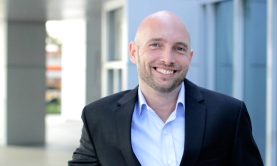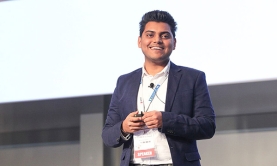Singapore
Legg Mason's MD talks of Singaporeans' ‘intriguing' investment behaviours
Lennie Lim reveals that one in five Singaporeans invest in things they don’t understand.
Legg Mason's MD talks of Singaporeans' ‘intriguing' investment behaviours
Lennie Lim reveals that one in five Singaporeans invest in things they don’t understand.
Bordier & Cie (Singapore) recognised for banking expertise at SBR International Business Awards 2017
Their winning initiative involved banking with personality.
Find out how startups can level the playing field with big companies
Callum Laing will discuss this at the SBR Hottest Startups Panel Briefing 2017.
Why it's necessary for property cooling measures to stay
The curbs early this year were not a sign of lifting cooling measures.
Here's where Del Monte can cultivate its growth
Its new products are well received by customers.
Singapore PMI slows down to 50.8
But electronics sector posted a faster expansion at 52.4.
3 possible risks to the stellar performance of Singapore's local exchange
Moderation of Singapore's GDP is one.
Ascott Residence Trust divests two properties in China
The divestment will register a yield of $198m.
Fact or fiction: Anyone can trade in Singapore
As Asia and Singapore becomes increasingly digitised, processes get automated and several industries are disrupted by technology, in particular, finance. From robo advisors to even analysts, there is no denying that finance in Singapore has been disrupted by new tech such as machine learning and predictive analytics. State of play today Artificial intelligence is progressing at a fast rate, and with it comes a deluge of data that humans cannot process quick enough. Whilst many of these technologies were created to help humans – for example, removing manual collation of data and data cleansing – so we can focus on other aspects of the business, what of the people whose jobs were mainly tied to such work, say for example stockbrokers? Are analysts (be it financial or data) who were once considered “unicorns” at risk of being replaced by AI that can calculate and perform complex tasks faster, minus human error? There’s no denying that with this disruption comes a period of uncertainty. The following list will separate fact from fiction. Fact: Your next stockbroker in Singapore might not be human. But it doesn’t mean you will sit in front of a robot. Financial institutions in Singapore are increasingly turning to machines to automate jobs that humans have done for decades. Take for example wealth management firm Charles Schwab and their offering Schwab Intelligent Portfolios launched two years ago. Based on algorithms, i.e. lines of codes programmed into a computer, you’ll be informed of where to invest your money. The process is also relatively simple. You simply open and account, fill out a questionnaire and instead of getting a human that simply crunches the numbers, machine learning and predictive analytics step in to help you make decisions. Fiction: People will always just want to deal with humans in Singapore If you think about this particular model of business, you’re paying for an advisor that:
HLH Group names Leck Siew Huan as financial controller
She was appointed on 3 July 2017.
Biofourmis CEO Kuldeep Singh to delve on healthcare data analytics
He will discuss this and more at the SBR Hottest Startups Panel Briefing 2017. Kuldeep Singh is the Founder and CEO of Biofourmis Pte Ltd, a Singapore-based data analytics company working around a singular challenge: to personalise healthcare through actionable insights. An ex-PhD Research Scholar at the National University of Singapore, Singh took a break from his PhD to focus on building bioelectronics medicines which aim to control biological processes and treat diseases by modulating electric impulses. Prior to moving to Singapore, he held a research position at MIT Media Lab’s Camera Culture group, where he worked on various wearable technologies and biosignal analytics for cardiac health monitoring. He believes in pushing out working prototypes and closing the gap between engineering and medicine. He is the part of Google’s Solve for X community and has been invited to speak at various prestigious platforms like TEDx, HiMSS, EMBC etc. on various biomedical technologies. Singh and his team at Biofourmis have begun their journey towards unlocking the potential of biosensors to give deeper and meaningful insights into one’s health, through data. He seeks to connect ideas and people to spark innovation.
Transcorp Holdings appoints Lim Boon Ping as chief financial officer
He was appointed on 3 July 2017.
Ecowise Holdings appoints Er Kwong Wah as lead independent director
He will also be the nominating committee chairman.
Competition between serviced and private residences to intensify
URA reduced the minimum stay for private properties to three months.
China Star Food Group appoints Kuan Cheng Tuck as independent director
He will also be the audit committee chairman.
Libra Group appoints Ang Choon Cheng as executive chairman
He was appointed on 3 July 2017.
CCT sells Wilkie Edge to Lian Beng for $280m
It is part of the groups' reconstitution strategy.













 Advertise
Advertise


















